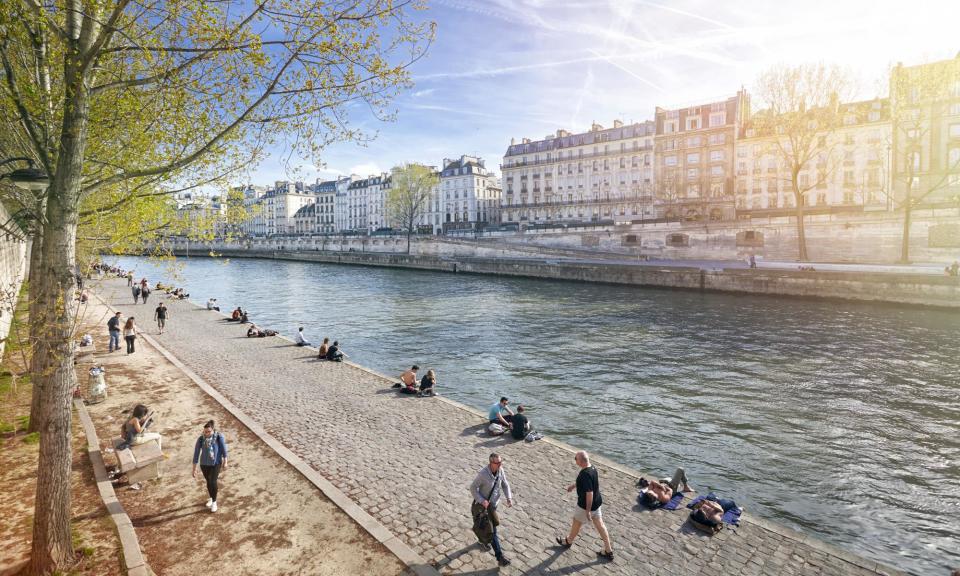Old Paris balconies ‘pose risk to crowds watching Olympics opening ceremony’

Paris authorities are debating whether to order an inspection of the balconies and balustrades of thousands of buildings lining the River Seine amid warnings they could collapse under the weight of spectators watching the Olympics opening ceremony this summer.
“It’s clearly a scenario that could happen,” Olivier Princivalle of the property professionals’ association FNAIM told Agence France-Presse, adding that the topic had recently been raised at a regular preparatory meeting with police and city hall officials.
“We absolutely have to be sure that balconies will support the extra weight, and that balustrades are solidly attached, to avoid incidents.” Buildings often 150 years old or more “may not be up to the possible additional strain, and that creates significant risk”, he said.
Plans for the 26 July opening ceremony involve a waterborne extravaganza in which more than 10,000 athletes and national officials will sail down the Seine in 160-plus open-topped boats, and will be watched from the river’s banks by 300,000 spectators.
In principle, balconies on Parisian buildings from the late 19th-century Haussmann period should support 350kg/m2, the equivalent of about three adults, but the authorities fear that poor maintenance and overcrowding could cause some to give way.
Four people died in the town of Angers, in western France, in 2016 after a balcony collapsed during a party, while in May last year, two people were seriously injured when a balustrade and part of a balcony gave way in the 15th arrondissement of Paris.
Property owners, social housing providers and management firms are required by law to regularly check the safety of balconies and balustrades, but not all do. “Above all, they risk being heavily overloaded during the opening ceremony,” Princivalle said.
The Paris police force and city hall have confirmed that the issue, which in theory involves several thousand buildings along the ceremony’s 4 mile (6km) route, was under discussion but no decision has yet been taken, with the cost of a full structural inspection seen as prohibitive.
Separately, Emmanuel Macron on Tuesday scrapped plans to move many of the city’s secondhand booksellers’ boxes from the banks of the Seine in the run-up to the ceremony, saying he considered them part of the “living heritage of the capital”.
Police told the booksellers last summer that for “obvious security reasons”, 570 of the bouquinistes’ stalls – about 60% of the total – would have to be temporarily relocated to a special “booksellers’ village” for the duration of the Games.
The booksellers have actively campaigned to keep their green boxes in place, even if they have to be closed during the opening ceremony itself, saying they were as much a part of Paris as the Eiffel Tower or Notre Dame Cathedral.
The Elysée Palace said the French president had instructed officials to ensure security arrangements for the ceremony were adapted to allow the bouquinistes, who have been selling secondhand books on the Seine’s quaysides for more than 400 years, to stay.

 Yahoo Sport
Yahoo Sport 





































